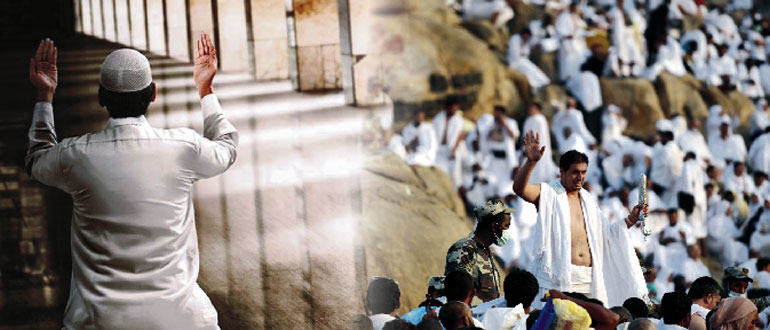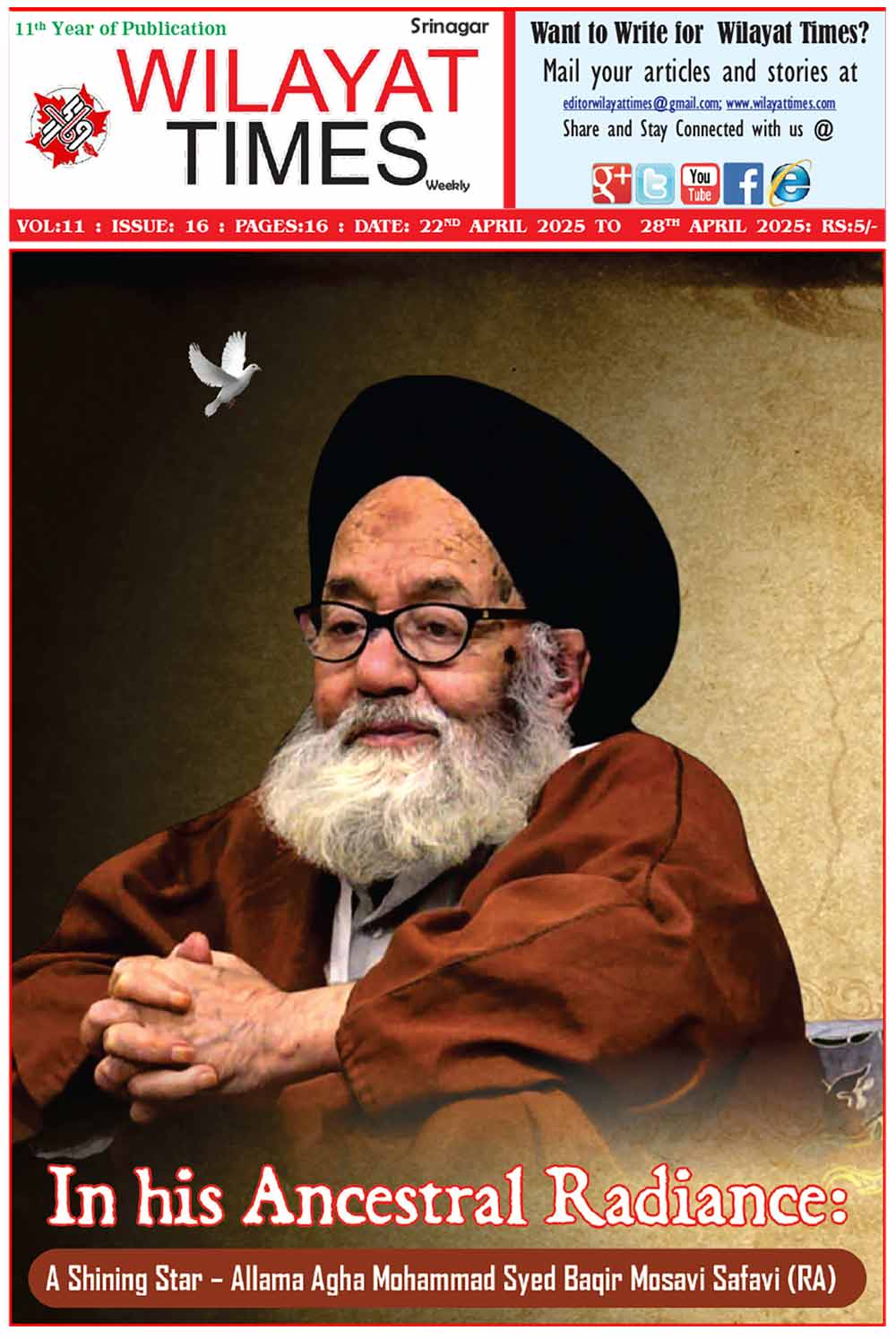Education was one of the central aspects of the Prophet’s life, something that was closely connected to his mission as a messenger of Allah and the example of an Islamic ideal. He perceived the value of knowledge and emphasized its role in the community, especially among the youth, who were the major catalysts in the next generation. Thus, he aspired that as Muslims they should receive education in different areas and study secular subjects such as literature and science. Moreover, he urged them to make critical assessments of their world.
By:Imran Maqbool Wani
Education indeed is one of the most important factors that defines the destiny of any society. It is the key tool that guides young minds to shape the character they are building. Education for the Muslim community implies spiritual knowledge such as recitance of the Quran and moral education that prepares a person for real life, which leads to social progression. These varied aspects make education one of the significant matters of Muslim societies and an essential constituent of its overall cultural identity.
Islamic education is a form of learning that considers knowledge and knowledge-seeking with the Quran at the core of the process. The Quran and Hadith that describe the revelations of Prophet Muhammad and his statements and actions present the religious teachings of Islam. This sacred text sets a framework that Muslims use to make faith-based decisions, as well as help them navigate the ethical and moral aspects of their daily lives. Through committing, enacting, and analyzing the texts, the students can have a fundamental grasp of Islamic ideology, ceremonies, and conduct. Alongside the Quranic study, learning the Islamic jurisprudence (Fiqh), theology (Aqeedah), and the biography of the Prophet Mohammad SAW (Seerah) formations is another aspect of Islamic education. The curriculum is fundamentally broad-based, equipping students with skills and knowledge needed to be able to interact with the different flavors of religion and practice. Studies in religion encourage and emphasize that Muslims feel spiritual bonds as well as community with Muslims all over the world, giving them a sense of being one with the Ummah. Via the learning of the origin and customs associated with Islam, the students are more effective at acknowledging their cultural heritage and, at the same time, are better at understanding the role played by religion in their lives.
”The loins thereof are he who is pouring down plenty of rain on earth reflects well the light and the power of the Holy Spirit. It should therefore be noted that some of the precipitation falls directly onto soil that has the potential to absorb it and end up being green in hue with abundant vegetation and grass. Still, some other parts of the water from the rain are also splashed washed, or collected to ensure the availability of drinking water and irrigation water and feed for livestock. Additionally, some of the rainwater showers on land which is not used and it is not of any good to it. This is the symbol for those people who comprehend and who gain by Allah’s belief and teachings, also it is for those people who ignore and do not care for it. It shows the reason to be the top person in religion by learning it and sharing it with others to help not only yourself but the society like how the hard ground gets water from the rainwater.”
Islamic education is based upon moral upbringing, which unites the world of morality and religion by admonishment. The Quran and the example of Prophet Muhammad are the mainstay of noble values about ethics and morality, which encompass such values as compassion, honesty, integrity, humility, and justice. According to Islam, a parent is the primary teaching source to a child and plays a vital role in the process of providing religious values to that child at an early age. They employ different approaches, such as narrative, exemplification, empathizing, and altruistic issues during lessons to transmit moral values to their kids and mold their character and decision-making. Moreover, within Islamic schools and community centers, different lessons and activities usually take place which ultimately attempt to preserve the morals of young Muslims and teach them the right conduct.
When they strengthen their moral code, young Muslims will be able to subdue the confounding moral issues of the modern world with the use of Islamic guidelines for ethical decision-making. The statement of the Hadith, “The virtue of you is measured by the bestness of your manners and character,” emphasizes the traits of morality and character development in Islam. This Hadith reminds Muslims to put virtues such as honesty, kindness, patience, and humility among the firsts as they represent the key to walking in a good way and enjoying the pleasures of this life.
A fundamental aspect of the Muslim training system is the religious as well as moral education whereby this is not seen as separate. On the other hand, a comprehensive viewpoint is also taken by him that secular education and knowledge about the world are also essential which is referred to as “Duniya Wali Talim”. This encompasses teaching vocations especially in science, mathematics, language writing, and social studies, as well as vocational training and life skills development.
The educational enlightenment has always been the gift for the adherents of Islam because it grants them the scientific criteria of self-development, progress, and civic involvement. Muslims are urged to gather information from all areas that cover the secular sciences such as physics, biology, chemistry, literature, and others. The Prophet Muhammad (PBUH) is mentioned as saying: “Pursuing knowledge is a duty upon every Muslim”. This quote stresses the position that everyone has to follow and the obligation to acquire knowledge and wisdom that allow individuals to add to society positively and act as the guardians of the Earth. A consequence is that Muslims believe that it (the pursuit of knowledge) is a fundamental part of their existence and the role of both religious and secular education has been thoroughly accepted by the Muslim community.
Efforts for achieving the goal have been launched in many Muslim-dominated countries: the main theme in this process is the increase in the number of educational institutions of excellent quality and the promotion of education for all sections of the population. Islamic education institutions like schools, colleges, and universities are another way through which the Islamic world can offer different categories of academic programs that help meet the educational needs of their Muslim students and provide access points for both intellectual growth and career development. They further contribute to the landscape, as the online learning platforms, educational scholarships, and vocational training programs are designed to equip Muslim youth with the necessary knowledge and skills to embrace their future. The most powerful mission in Muslim educational establishments and households is the correlation of theological, ethical, and secular instruction. They aim to establish educational institutions that offer situations conducive to learning, alongside Islamic educators, contemporary pedagogies, and methods that develop the students’ critical thinking, creativity, and problem-solving skills. The use of interdisciplinary studies, project-based learning, and community service initiatives will work to bring the values of faith into the day-to-day lives of students. It will be this combination of spirituality and scholarship that will prepare them to serve with purpose in both their communities and wherever they may find themselves in their lives.
The reinforcement of this integrative approach can be demonstrated by the implication of the Islamic education for citizenship that stresses the role of nurturing people to be faithful and socially constructive, this is seen in the framework of Islamic principles. This phased-in approach to education aims at empowering students to become agents of change in their communities, working side by side with their neighbors to improve their welfare, while questing for the moral principles of justice, equality, and mercy.
Education was one of the central aspects of the Prophet’s life, something that was closely connected to his mission as a messenger of Allah and the example of an Islamic ideal. He perceived the value of knowledge and emphasized its role in the community, especially among the youth, who were the major catalysts in the next generation. Thus, he aspired that as Muslims they should receive education in different areas and study secular subjects such as literature and science. Moreover, he urged them to make critical assessments of their world.
Muhammad (PBUH) was of the view of developing whole personalities and, thus, instructed people to remain curious about world affairs, warned them to abstain from bad behaviors, and encouraged spiritual growth. A remarkable characteristic of his teachings is that it represents the ideal of Islam as a message of social justice, compassion, and benevolence. Through education, he tried to give an individual what he needed to be successful so that the person in turn could emancipate, serve humanity, and show their commitment to Islamic values in their daily lives.
Also, Islamic education was useful for both the retention and expansion of Islamic teachings to the succeeding generations, which helped to guarantee the survival of the religion. Beyond a shadow of a doubt, the educational philosophy of Prophet Muhammad became an illuminating example for Muslims, who have followed it in the process of acquiring knowledge, cultivating ethical conduct, and participating in all benevolent acts. So, they have done their duties as keepers of the Earth and carriers of the Islamic message of peace and impartiality to people’s lives.
The cultivation of Muslim youth has the main purpose of improving their spiritual, moral, and physical well-being by taking a strategic approach to their upbringing which comprehensively covers their religion, morals, and material issues. Through incorporating these three basic fields of learning, Muslim communities as such enable people to live a meaningful existence based on the principles of faith, and integrity and having a purpose, in a world that unites peoples. To this purpose, we should be able to foster a solid connection and collaboration among Muslim families, teachers, religious leaders, and policymakers to make sure that the next generations of Muslims have all the educational stuff, skills, and guidance needed to live as enlightened, responsible, and compassionate citizens. Taking this geared towards a constructive way the youth will be able to make profound inputs into the community and make change for prosperity.



